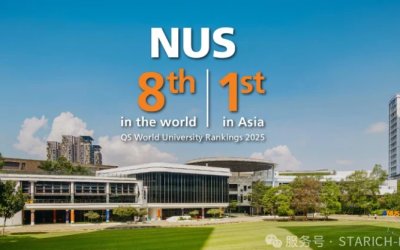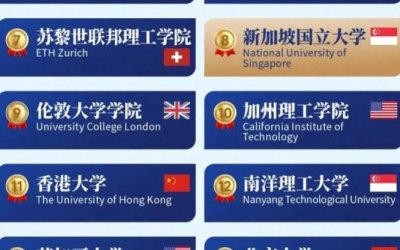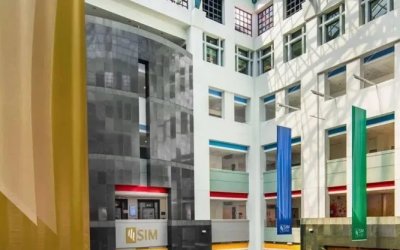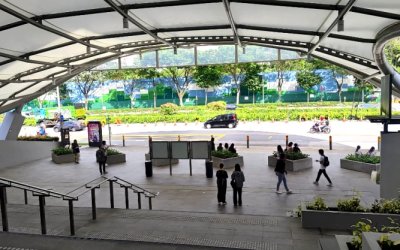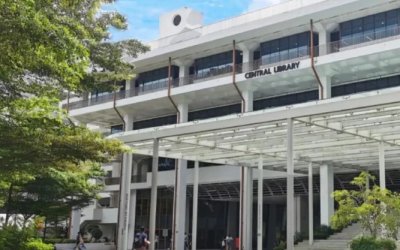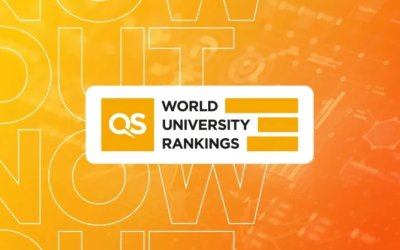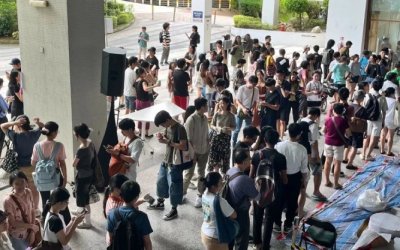印象解讀
關於新加坡非政府院校相關答疑
每當談到新加坡的高等教育
人們總是會把自己的選擇分為兩類
政府院校/非政府院校
而對於人們對於非政府院校的印象
依舊存在一些刻板印象和疑問
因此一家來自新加坡本地的新聞媒體平台
邀請了詹姆斯庫克大學新加坡校區
學術院長Abhishek Bhati教授
就他們所收集到的一些印象及疑問進行回應
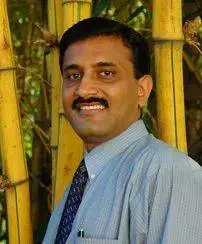
Professor Abhishek Bhati
The Campus Dean and Head of Learning, Teaching, and Student Engagement at James Cook University, Singapore (JCU)
Q1:非政府院校的學費比較於政府院校會相對昂貴?
A:「第一點是非政府大學在學費補貼方面沒有政府的支持,因此這可能會對學生自己所需支付的學費有所影響。
第二點是在政府大學,學生可能需要三年半或四年時間才能完成學業,而在我們詹姆斯庫克大學新加坡校區的學生最快只需要兩年或兩年半時間就能完成學士學位。
換而言之,雖然 JCU 的學費可能較高,但由於學生可以更快地畢業並更早地進入工作,機會成本也隨之降低。」
「The first point of course, is that when you say private university, that means that there is no government support in terms of fee subsidy,」 replied Abhishek.That may have an impact on the fees that the students have to pay.
The second point the Dean wanted to make in response to this sentiment has to do with JCU’s fast-tracked programs.What might take three and a half, or four years in a public university, our students at JCU can complete in two or two and half years.」In other words, while tuition fees at JCU might be higher, the opportunity costs are reduced as students graduate faster and enter the workforce earlier.
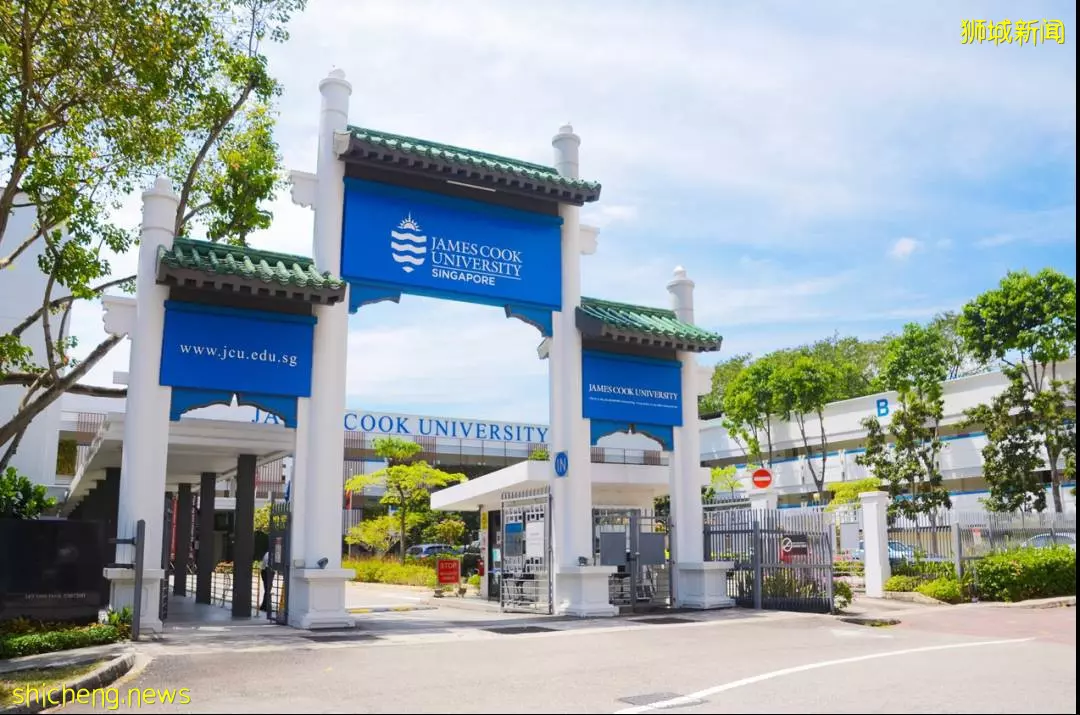
「我們詹姆斯庫克大學新加坡校區所提供的這種快速課程在完成了兩年服兵役後開始上大學的男生中特別受歡迎。
因為他們需要在國家建設上投入兩年的時間,他們可能會認為同齡的女孩們在時間上會有一定的優勢。所以當他們完成了服兵役,他們來到了詹姆斯庫克大學新加坡校區進行學習,就可以追趕上這兩年的時間差距。」
National Service (NS)
由於新加坡政府規定,當地所有年滿18周歲的男性公民和永久居民,不論種族,國籍,家庭背景,都必須應徵入伍。男生需要完成兩年的服兵役。
「These fast-tracked programs, said Abhishek, were especially popular with male students starting university after finishing two years of National Service (NS).
「Once they do NS, they might think that the girls have an advantage because they』ve invested two years in nation building, which is a very important thing to do in my opinion.
But the moment they finish NS, they come to JCU, and they catch up; they can make up for those two years.」
Q2:在這麼短的學制時間內能夠學習到足夠的知識嗎?
A:「這是一個很重要的問題。我們大學提供的快速課程確可以縮短時間跨度,但是只針對於那些期望可以快速完成學業的學生。對於那些希望可以慢慢來的學生,他們依舊可以以自己期望的速度完成課程。雖然在詹姆斯庫克大學新加坡校區完成課程的最短時間是兩年,但學生依舊可以靈活地選擇在三年或四年內完成課程。學生有權利決定他們學習生活的最佳節奏。」
「That’s an important concern,「Yes (our courses) are fast-tracked. But they are only fast-tracked for those who want to be fast-tracked. If they want to take it slow and easy, they can do that too.」The seasoned educator pointed out that while the minimum time to complete a course at JCU is two years, students have the flexibility to take that same course over three or four years instead — just like at a traditional university.Students have the liberty to determine what the best pace for their learning experience is.「
Abhishek教授還強調了詹姆斯庫克大學新加坡校區擁有授予經國際認可的學位的能力。這包括心理學—擁有澳大利亞心理學認證委員會認可的學位,會計學學位被許多國際會計機構認可,比如英國特許公認會計師公會(ACCA) 和澳大利亞特許會計師協會、以及大學的指導和諮詢碩士課程,該課程被新加坡諮詢輔導協會認可。
這些認證證明了雖然詹姆斯庫克大學新加坡校區縮短了學習的時間跨度,但學生仍然可以掌握在工作場所取得成功的必要技能。
Abhishek also emphasised the university’s ability to award accredited and internationally recognised degrees.
This includes its Psychology, degree accredited by Australian Psychology Accreditation Council, its Accountancy degree — recognised by a variety of global accounting bodies like the Association of Chartered Certified Accountants and Chartered Accountants Australia — and their Master of Guidance and Counselling programme which is recognised by the Singapore Association for Counselling.
The accreditation, he explained, is the evidence that while duration of study may be shortened at JCU, students are still being equipped with the necessary skills to be successful in the workplace.

Q3:非政府院校會更容易進入嗎?
A:「這個問題提出了政府資助教育機構和非政府資助教育機構之間的一個重要差別。一個政府資助的機構的學習空間是有限的。舉個例子來說,一個會計課程可能有60個名額的資金。只有60個名額可供爭奪。而非政府院校不受這一點的限制,我們可以為更多的人提供學習的機會,而不是僅僅局限於一小部分人。這是一種更具包容性的模式。」
For Abhishek, this brought up a crucial distinction between publicly and privately funded institutions.A publicly or government-funded institution will always have limited spaces to study,Take for example, an accounting course which may have funding for 60 places. There would only be 60 places up for grabs, explained the Dean. 「We are not limited by that. We can offer opportunities to a larger group of people to study and not limit it to a small group. It's not an elitist model, but it’s a more inclusive model.」
但是,Abhishek教授同時也強調了大學並非大家印象中的所有人都可以入學。詹姆斯庫克大學新加坡校區擁有著明確的入學要求,以確保進入該課程的學生具備成功所需的基礎知識,如進入學士課程的高中證書。
Abhishek was quick to stress, however, that the university does have entry requirements to ensure that students entering the programme have the foundational knowledge needed to succeed such as high school certification for entry into undergraduate courses.
Q4:非政府院校的學習環境比政府院校要更好嗎?
A:一些人認為非政府院校的有更有利於學習的條件。而針對於這種觀點,Abhishek教授回應到「我不會去對兩者進行比較。我想說我們詹姆斯庫克大學新加坡校區為學生提供了一個不同的學習環境。這也正是我們想表現出來的——與眾不同、獨一無二的。正因為我們是獨一無二的,所以學生們喜歡來到我們大學就讀。
On a more positive note, several individuals wrote that they found private institutions more conducive for learning.In response to this sentiment Abhishek was diplomatic; 「I wouldn』t compare.I would say that JCU definitely provides a different learning environment. And that’s how we want to come out — as different, unique. And because we are unique, students like to come to us.」
這種獨特性的表現之一是詹姆斯庫克大學專注於熱帶地區的使命--地球上大致位於地球中部的地區。這意味著大學努力使其課程與該地區相關,設立涉及熱帶國家、社會、社區、產業的獨特課題,並研究其人民所面臨的問題的解決方法。亞洲的大部分地區,發展中國家的大部分地區,都位於熱帶地區。我們希望通過我們的畢業生和我們的研究,為熱帶地區的生活做出貢獻。比如通過我們的畢業生在熱帶國家工作,或者通過我們的研究改善熱帶和其他地區的生活。」
One way this uniqueness is expressed is in JCU’s mission to focus on the Tropics — the regions of the Earth that lie roughly in the middle of the globe.This means that the university strives to make its courses relevant to the region, tackling topics unique to tropical countries, societies, communities, industries and researching solutions to the problems faced by its people.「Most of Asia, most of the developing world, that’s all situated in the tropics,」 Abhishek explained.
「We want to contribute to life in the tropics, through our graduates and discoveries. That is through our graduates working in countries in the tropics or through our research improving lives in the tropics and beyond.」


